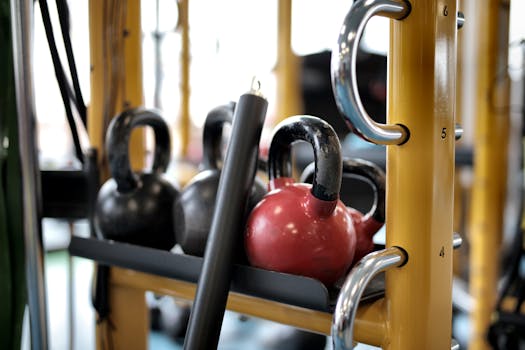Embracing a Balanced Lifestyle: Your Guide to Wellness and Happiness
Takeaways: In this comprehensive guide, we explore various aspects of a balanced lifestyle. Discover the importance of wellness, productivity, and self-care practices to enhance your overall happiness. Learn practical tips and strategies to implement into your daily routine for a healthier, more fulfilling life.
Understanding the Concept of a Balanced Lifestyle
A balanced lifestyle is about finding harmony between the various aspects of your life—work, health, relationships, and personal growth. It’s a holistic approach to living that focuses on nurturing both your body and mind.
The Importance of Balance
Balance is crucial for maintaining physical health, mental clarity, and emotional stability. When one area of your life is out of balance, it can impact your overall well-being.
Components of a Balanced Lifestyle
- Physical Health
- Mental Well-being
- Social Connections
- Personal Growth
- Work-Life Harmony
Assessing Your Current Lifestyle
To create a balanced lifestyle, you must first assess where you currently stand. Consider your daily habits, routines, and the time you allocate to different life areas.
Wellness: The Foundation of a Balanced Lifestyle

Physical Wellness
Physical wellness involves taking care of your body through proper nutrition, exercise, and rest. Here are some strategies to improve your physical wellness:
- Nutrition: Focus on a balanced diet rich in fruits, vegetables, whole grains, and lean proteins.
- Exercise: Aim for at least 150 minutes of moderate aerobic activity each week, along with strength training.
- Sleep: Prioritize sleep by establishing a consistent sleep schedule and creating a restful environment.
Mental Wellness
Mental wellness is about maintaining a positive mindset and managing stress. Here are some tips to enhance your mental health:
- Mindfulness: Practice mindfulness meditation to reduce stress and increase awareness.
- Stress Management: Utilize techniques such as deep breathing exercises and journaling to manage stress effectively.
- Seek Help: Don’t hesitate to seek professional help if you are struggling with mental health issues.
Emotional Wellness
Emotional wellness is about understanding and managing your emotions. Key strategies include:
- Self-Reflection: Regularly take time to reflect on your feelings and experiences.
- Express Yourself: Find healthy outlets for your emotions, such as art, music, or talking to friends.
- Build Resilience: Work on developing resilience to cope with life’s challenges more effectively.
Productivity Hacks for a Balanced Life

Prioritization Techniques
Learning to prioritize tasks is essential for productivity. Some effective methods include:
- The Eisenhower Matrix: Categorize tasks by urgency and importance to identify what to focus on.
- Time Blocking: Allocate specific blocks of time for different activities to maintain focus.
- SMART Goals: Set Specific, Measurable, Achievable, Relevant, and Time-bound goals to guide your efforts.
Eliminating Distractions
Distractions can derail your productivity. To minimize distractions:
- Limit Social Media: Set specific times for checking social media to avoid distractions.
- Create a Dedicated Workspace: Have a specific area for work that is free from distractions.
- Use Focus Tools: Consider apps that block distracting websites during work hours.
Enhancing Time Management Skills
Improving time management skills is vital for maintaining balance. Here are some strategies:
- Plan Your Day: Start each day with a clear plan of what you want to accomplish.
- Set Deadlines: Give yourself deadlines to create a sense of urgency.
- Review and Adjust: Regularly review your progress and adjust your strategies as needed.
Self-Care Practices for a Happier Life

Physical Self-Care
Physical self-care includes activities that improve your physical health and well-being. Here are some ideas:
- Exercise Regularly: Find physical activities you enjoy, whether it’s dancing, hiking, or yoga.
- Eat Mindfully: Pay attention to your eating habits and choose nourishing foods.
- Stay Hydrated: Drink plenty of water throughout the day to keep your body functioning optimally.
Mental Self-Care
Mental self-care involves activities that nurture your mental health. Consider the following:
- Read for Pleasure: Set aside time to read books that interest you.
- Practice Gratitude: Keep a gratitude journal to remind yourself of positive aspects of your life.
- Engage in Hobbies: Dedicate time to hobbies that bring you joy and relaxation.
Emotional Self-Care
Emotional self-care focuses on understanding and processing your emotions. Here are some practices to consider:
- Connect with Loved Ones: Spend quality time with friends and family to nurture your relationships.
- Seek Support: Don’t hesitate to reach out to friends or professionals when you need someone to talk to.
- Set Boundaries: Learn to say no to activities or commitments that drain your emotional energy.
Conclusion

FAQs
What are the key components of a balanced lifestyle?

How can I improve my physical wellness?
Improve your physical wellness by eating a balanced diet, exercising regularly, and getting enough sleep.
What are some effective productivity hacks?
Effective productivity hacks include prioritization techniques, eliminating distractions, and enhancing time management skills.
How can I practice self-care?
Practice self-care by engaging in physical activities, nurturing your mental health, and processing your emotions.
Why is balance important in life?
Balance is important because it helps maintain physical health, mental clarity, and emotional stability, leading to a more fulfilling life.
Sources
- Healthline – What Is a Balanced Diet?
- Psychology Today – The Importance of Self-Care
- Forbes – 15 Ways to Practice Self-Care and Why It Matters






1 thought on “Embracing a Balanced Lifestyle: Your Guide to Wellness and Happiness”
Comments are closed.